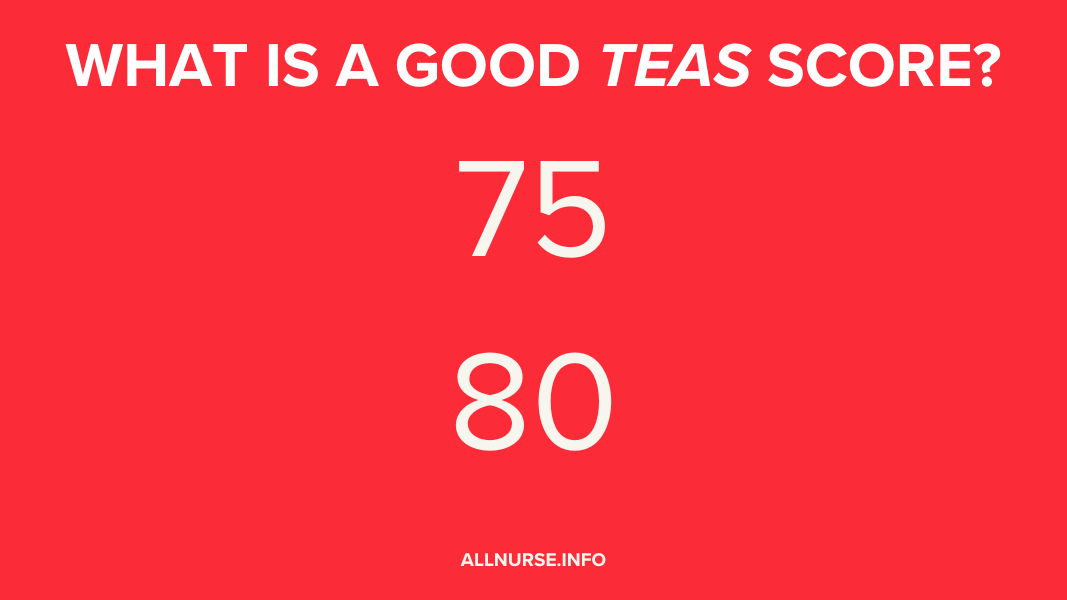If you’re an aspiring medical student, you’ve probably heard of the Test of Essential Academic Skills (TEAS). As one of the most important exams for pre-med applicants, it’s natural to wonder what constitutes a “good” TEAS score. In this blog post, we will delve into everything you need to know about TEAS scores, including the national average, the average score, what is considered a good score, and the difficulty level of the TEAS test.
How Is the TEAS Test Scored?
The TEAS exam assesses your preparedness for entering health science fields. It covers four main areas: Reading, Mathematics, Science, and English and Language Usage. The test is scored on a scale from 0 to 100 percent, and your score will fall into one of these categories:
- Developmental: 0.0% to 40.7%
- Basic: 41.3% to 58.0%
- Proficient: 58.7% to 77.3%
- Advanced: 78.0% to 90.0%
- Exemplary: 90.7% to 100%
What is National Average TEAS Score?
The national average TEAS score varies from year to year, but it generally hovers around 65-70%. This average is calculated based on the scores of all test-takers across the country. Understanding this benchmark can help you gauge where you stand in relation to your peers.
What is Average TEAS Score by Section?
The TEAS test is divided into sections, each with its own average score:
- Reading: The average score is typically around 70%.
- Mathematics: The average score usually falls between 65% and 70%.
- Science: This section tends to have a lower average score, often around 60%.
- English and Language Usage: The average score is generally around 65%.
What is a Good Score for the TEAS Test?
A “good” TEAS score can vary depending on the nursing or health science program you are applying to. However, most programs consider a score of 75% or higher to be competitive. Here is a breakdown of what different score ranges might mean for your application:
- 70-75%: This score is slightly above the national average and may be considered acceptable for some programs, but could be borderline for more competitive ones.
- 76-85%: Scoring in this range indicates strong academic skills and can make you a competitive applicant for many programs.
- 86-100%: A score in this range is excellent and positions you as a top candidate. It demonstrates exemplary academic ability and preparedness for rigorous health science programs.
How Hard is the TEAS Test?
The difficulty of the TEAS test can be subjective and often depends on your academic strengths and weaknesses. However, many test-takers find it challenging due to the breadth of content covered and the time constraints. Here are some factors that contribute to the test’s difficulty:
Content Areas
- Reading: Requires strong comprehension skills and the ability to analyze passages quickly.
- Mathematics: Involves algebra, geometry, and data interpretation, requiring both computational accuracy and problem-solving skills.
- Science: Covers a wide range of topics including biology, chemistry, anatomy, and physiology, which can be particularly difficult for those without a strong background in these areas.
- English and Language Usage: Tests grammar, punctuation, sentence structure, and contextual understanding, requiring meticulous attention to detail.
Time Constraints
The TEAS test is timed, with a total duration of 209 minutes or roughly 3.5 hours. Each section has its own time limit:
- Reading: 64 minutes
- Mathematics: 54 minutes
- Science: 63 minutes
- English and Language Usage: 28 minutes
Managing this time effectively is crucial for completing all questions within the allotted time.
Preparation Tips
- Create a Study Schedule: Allocate specific times for each content area based on your strengths and weaknesses.
- Use Study Guides: Invest in reputable TEAS study guides and practice tests to familiarize yourself with the test format and types of questions.
- Join Study Groups: Collaborating with peers can provide additional insights and keep you motivated.
- Take Practice Tests: Simulate test conditions to build your stamina and improve time management.
FAQs
Is 86 a good TEAS score?
The minimum requirement for admission is a total score classified as Proficient, necessitating a score of 58.7 or higher. To be competitive, students should aim to exceed this baseline. Typically, a competitive TEAS score ranges from 85% to 86%.
Is 90 a good TEAS score?
What Constitutes a Good TEAS Score? While aiming for 100% is ideal, it is not always practical. According to Kaplan, competitive TEAS scores range between 70%-90%. The national average composite score varies with each test administration; however, it typically falls between 65% and 75%.
Conclusion
Achieving a good TEAS score is a significant step toward gaining admission to competitive health science programs. Understanding the national average and what constitutes a good score can help you set realistic goals and benchmarks. While the TEAS test is challenging, thorough preparation and strategic studying can significantly improve your chances of success.
If you’re ready to take your test preparation to the next level, consider signing up for Jasper. Our tools and resources are designed to help you excel in your academic journey. Sign up for Jasper for free and start your path to success today.
We hope this comprehensive guide helps you understand what a good TEAS score is and how to achieve it. If you have any questions or need further assistance, feel free to reach out to us. Happy studying and best of luck on your TEAS test.
